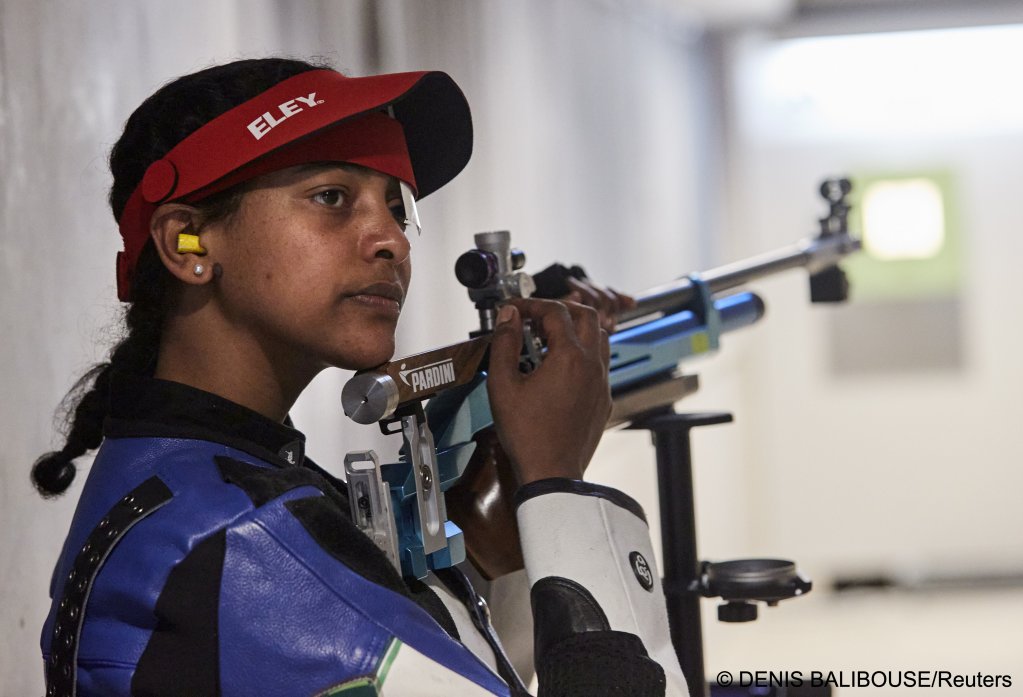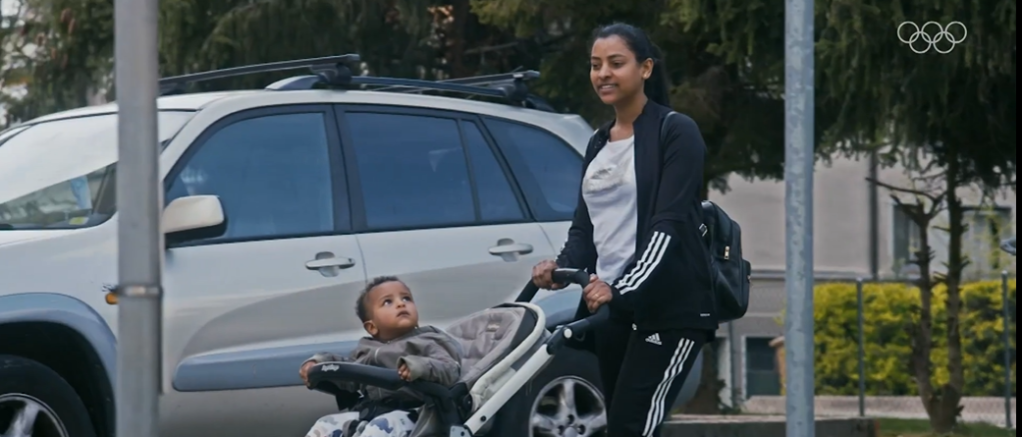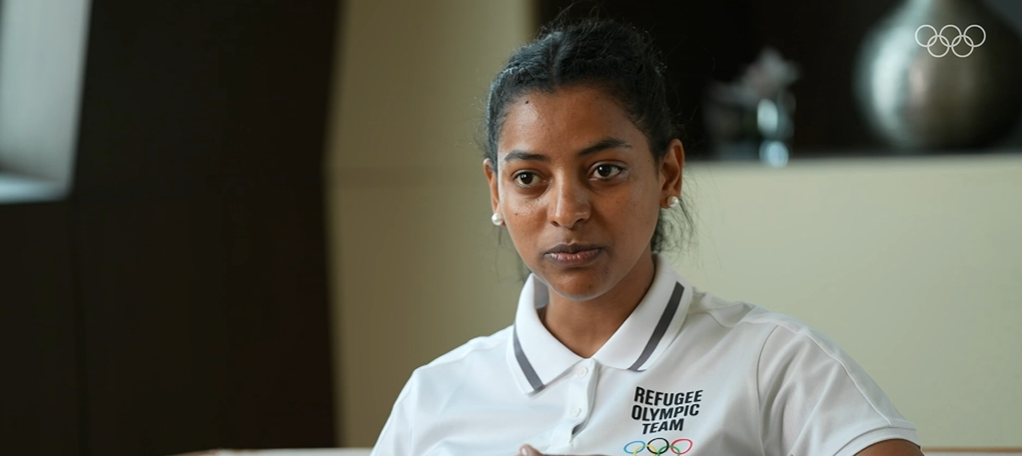Luna Solomon was 21 when she and some neighbors fled Eritrea in 2014 without a passport. Ten years later, she is part of the UNHCR’s Refugee Olympics team in Paris.
In December 2014, Luna Solomon, one of nine siblings, fled her home in Eritrea with some neighbors and without her passport. "I left because there was no freedom there," Solomon explained to the International Olympic Committee.
She ended up traveling across the Libyan desert with the group, before crossing the Mediterranean to Italy and finally entered Switzerland, where she’s now based, on her second attempt, reports the news agency Reuters.
"There was not much to eat in the desert, but thank god, I stayed alive…it was very strenuous," Solomon told Reuters.
Also read: Refugees aim for the Olympic squad
'Life doesn't always go in a straight line'
Her presence at the Paris Olympic games is actually the second time Solomon has competed at the Olympics with the UNHCR’s Refugee team. She was chosen to be part of the team prior to the build up for the Tokyo Olympics by three-time Italian Olympian and now shooting coach Niccolo Campriani.

Now 30 years old, Solomon didn’t quite make it into the final for the ten-meter air rifle event at this year’s games, but she is enjoying being present at the Chateauroux Shooting Center and part of the International Olympic Committee’s refugee team.
In a film with the IOC in 2020, Solomon explains that she thinks everyone should try and look at life positively, "because life doesn’t always go in a straight line. Sometimes it goes left, and sometimes it goes right."
Right now, Solomon’s line has led her back, for the second time, to the Olympics, and she is happy to be there, she says.
Also read: Largest ever refugee team makes its debut at the Paris Olympics
'Shooting ... is a mentality'
"In shooting it is not easy, but it is a mentality," Solomon told Reuters. "If you are not patient or calm, you don’t manage to succeed or hit your best scores. Patience is key for me.”
In a way, Solomon came to shooting by chance. After arriving in Switzerland it took her three years to be granted refugee status.
The meeting with Niccolo Campriani, and the granting of a scholarship to train as an athlete changed her life. "I didn’t know anything about sport shooting before I came to Switzerland," Solomon told the IOC. "In my country shooting was about killing people and military service. Why did it exist for sport? But happily, here [in Switzerland] it exists in a sporting sense to compete and win medals."
Solomon soon started to enjoy the sport and competed in weekend tournaments with other refugees who were also training alongside her. She had a pause ahead of what should have been the 2020 Tokyo Olympics, to have a baby. But the tournament was also postponed because of the COVID-19 pandemic, and by the time it took place the following summer in Tokyo, Solomon was ready to compete.
Also read: Refugee team flies the flag for resilience at the Paris Olympics
'Niccolo was like a brother, almost family for me'
"It was great. Niccolo was like a brother, almost family for me. Thanks to him, I was loving sport," she told Reuters.

In an interview for the International Olympic Committee ahead of the Tokyo Olympics, Solomon explained that prior to meeting Campriani, she had "kept my head down, I never looked anyone in the face, because I was a refugee." After the meeting, she described herself as "a person like everyone else."
She said that meeting him had "given me confidence." Campriani said to the IOC in 2020 that he felt that once Luna had found a balance in her life, her results were improving all the time. He remains modest about the impact he had on her life, reports Reuters, but pleased that he has helped create a difference.
Also read: Refugee swimmer sees need for better integration
Raising the profile of refugees through sport
"These are drops in the ocean, but you have a chance to make an impact in other people's lives, that's absolutely something very deep and dear to me," the Italian told Reuters.
Solomon said at the time that doing well at the games was "important to show good things about refugees, and to show that migrants like me can do good things." She added, "people don’t come to a country just to take advantage of something. People do not choose a country just to benefit from it."

Instead, said Solomon, people go to a country looking for "safety and security and a place where they can realize their future." Solomon hopes that participating at the Olympic games will raise the profile of refugees the world over.
"Sometimes a person can make a choice, sometimes they can’t,” explains Solomon in the IOC film. Even though we would like to stay in our homeland with our parents. But the situation was not safe, so we decided to leave."
Also read: The story of Samia, who drowned chasing the Olympic dream
With Reuters
